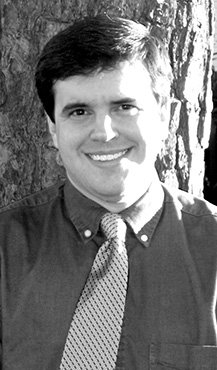Betty Flanagan Bumpers made the position of First Lady of Arkansas more than just a ceremonial position. Through her efforts, she launched a movement that saved countless lives across the country by promoting the importance of vaccinations.
She was born Betty Callan Flanagan in Franklin County in 1925. She would eventually attend the University of Iowa and the Chicago Academy of Fine Art where she would meet Dale Bumpers in the 1940s as he attended law school. The two would marry in 1949. Dale Bumpers was elected governor of Arkansas on a reform platform in 1970.
As the new Arkansas First Lady, Betty Bumpers was appalled by the poor health conditions of many Arkansas children. She soon organized and spearheaded the popular Every Child By ’74 campaign. It was an aggressive effort by Betty Bumpers and public health officials to educate the public about the dangers of infectious diseases and the safety and effectiveness of vaccines and ultimately require all children in the state to be vaccinated against diseases, including tetanus, measles, whooping cough, and hepatitis – all potentially deadly diseases.
Vaccination programs had already proven extremely successful and reliable. Arkansas, in fact, had been the first state in the nation to require smallpox vaccinations for children to attend public schools. This mandate went into effect in 1916. By 1922, smallpox outbreaks had effectively ended in the state. An aggressive vaccination campaign had officially eradicated smallpox in the US by 1971. By 1978, this same disease that had killed millions was wiped out forever. Similarly, polio had effectively vanished from the United States by the late 1960s.
Every Child By ’74 transformed public health in the state. For example, a measles outbreak in Texarkana in 1970 and 1971 resulted in 639 infections among area children. The epidemic, possibly deadly, raged for weeks. Because of the vaccination campaign afterward, measles was unheard of in Texarkana children by the late 1970s and almost unknown in children statewide. Arkansas soon led the nation in the number of children vaccinated against disease. As a result, disease rates plummeted. Eradication of these diseases saved Arkansas families millions of dollars from related health costs and lost wages for those having to take off wok because of an illness or having to take care of sick children. Officials across the country marveled at the success of the effort and began modeling campaigns in their own states to promote childhood vaccinations.
When Dale Bumpers was elected to the US Senate in 1974, Betty Bumpers took her campaign with them to Washington, DC. In 1977, she worked with President Jimmy Carter and First Lady Roslyn Carter to launch a national vaccination program. In 1991, Betty Bumpers and Roslyn Carter launched the Every Child By Two campaign, a nationwide effort to ensure that vaccinations for children continued. Even with the clear success of her efforts in Arkansas and across the nation, vaccination efforts faced resistance from people who did not understand how vaccines worked or the life-saving benefits of vaccinations. In spite of this, the Every Child By Two campaign and other vaccination efforts continued to be supported by medical professionals.
In 1999, President Bill Clinton dedicated the Dale and Betty Bumpers Vaccine Research Center at the National Institutes of Health in honor of their work. As a result of this work, by 2012, more than 95% of American children had been vaccinated and the Arkansas Department of Health alone provided 400,000 vaccines to young and old alike.
Bumpers continued to be involved in public health causes in her later years. She died in Little Rock in 2018 at age 93. In 2020, the world awaits news of a breakthrough for a vaccine to prevent the deadly coronavirus and end the pandemic that has left 1.3 million dead worldwide and nearly 250,000 dead in the United States. The efforts of Betty Bumpers in Arkansas has already shown Arkansans how vaccines can promote health and end the devastation of epidemics.
Dr. Ken Bridges is a professor of history and geography at South Arkansas Community College in El Dorado and a resident historian for the South Arkansas Historical Preservation Society. Bridges can be reached by email at kbridges@ southark.edu.
